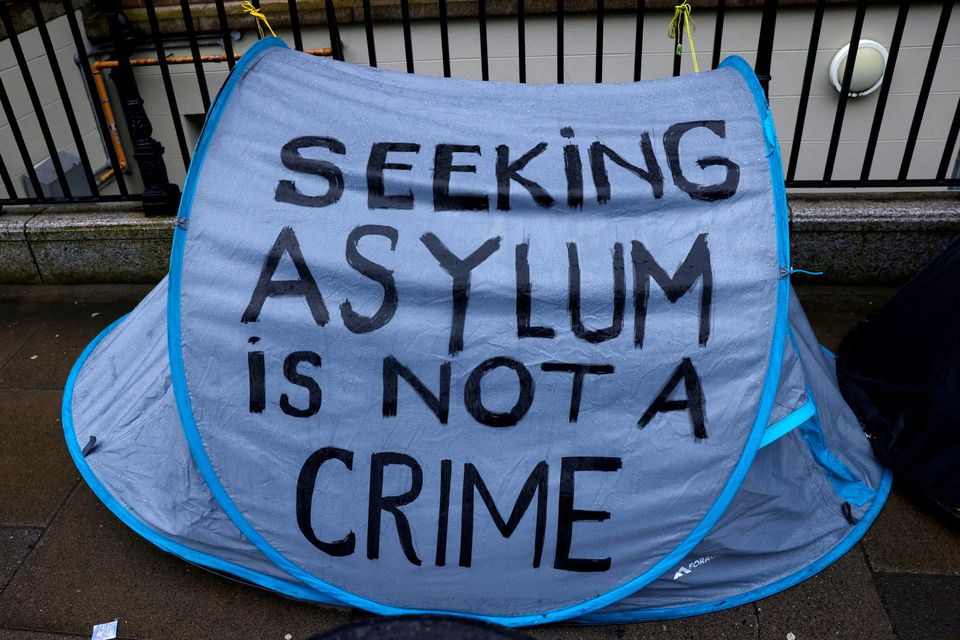Editorial: ‘Tent city’ shambles a shameful exercise in kicking the can down the road on immigration
A tent belonging to an asylum-seeker outside the International Protection Office (IPO) in Dublin, where hundreds of migrants in search of accommodation had been camping on the pavement for several months. Photo: Reuters
Public representatives are expected to understand you manage things, but lead people. If you do neither, you lose your ability to influence actions and will cede control to outside forces.
The shambolic handling of migrants in Dublin and around the country is a case study in what happens when you let circumstances make decisions for you.
Justice Minister Helen McEntee is right in saying Ireland cannot manage migration on its own, but this must not detract from the failure to provide adequately for asylum-seekers in the capital and elsewhere around the country.
Camps like the one at Mount Street speak to a complete breakdown in processes and absence of policy.
Two-hundred tents sprung up at the International Protection Offices without any appropriate sanitary facilities. The asylum-seekers felt safer together as they were on the streets, at the mercy of not only the elements, but of hostile groups.
The question that needs answering is: Why did it take so long to move them to a place where they would be safe? Why was there such a delay in offering the very basics for living with some semblance of dignity until applications were processed?
They have finally been provided with “robust, weatherproof tents” and will be given food and hygiene facilities, according to International Protection Accommodation Services (IPAS) staff. All were told they were committing an offence by staying put and would be arrested if they failed to co-operate, yet it was not they who chose to be on the streets.
Taoiseach Simon Harris referred to the move as a “humanitarian operation”, but mystery remains as to why there was such a paralysis in decision-making that it took this long to provide “safe beds”.
Integration Minister Roderic O’Gorman described the “tent city” as an “extremely difficult situation”, while Public Expenditure Minister Paschal Donohoe said state agencies will take all the steps needed to try to prevent something of this scale happening again.
An explanation as to why such steps were not taken in the first place and how such an abnegation of responsibilities is possible would also be welcome.
Mr Harris himself described the street camp as a “makeshift shantytown”. Indeed, it was expanding so rapidly that it would soon have reached the steps of the European Parliament offices. This was, in a sense, somehow fitting, as the issue is one the whole of Europe must embrace.
If the new European Migration and Asylum Pact is accepted, tighter and more efficient processing of applications will be implemented across the bloc. It provides for asylum camps near airports.
Integrated EU mechanisms so that there will be equity and consistency across the EU are vital. However, our Government must implement a coherent and co-ordinated plan for managing asylum-seekers.
It is utterly unacceptable, as noted by Labour TD Aodhán Ó Ríordáin, to “dehumanise those who come here seeking sanctuary”.
Join the Irish Independent WhatsApp channel
Stay up to date with all the latest news















